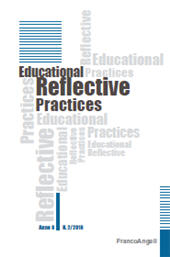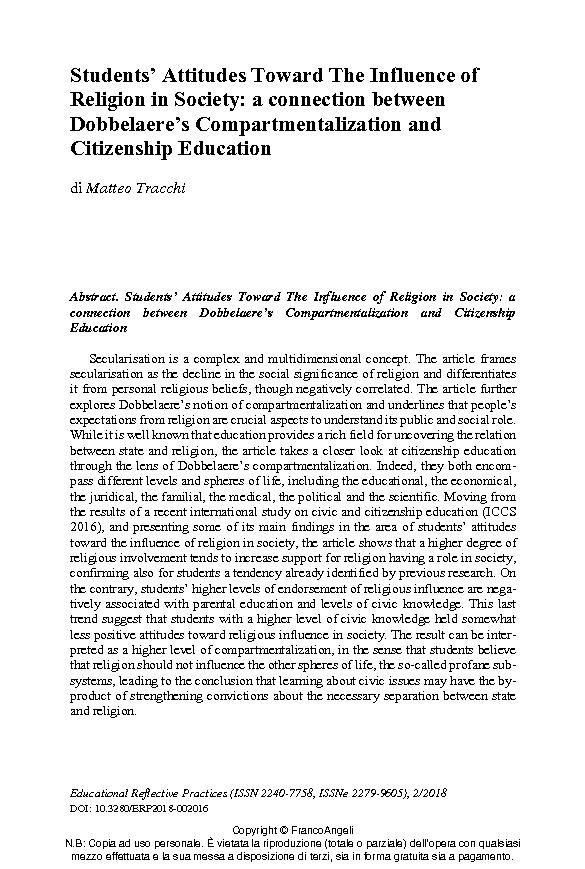Students' Attitudes Toward The Influence of Religion in Society : a connection between Dobbelaere's Compartmentalization and Citizenship Education
244-257 p.
Secularisation is a complex and multidimensional concept. The article frames secularisation as the decline in the social significance of religion and differentiates it from personal religious beliefs, though negatively correlated. The article further explores Dobbelaere's notion of compartmentalization and underlines that people's expectations from religion are crucial aspects to understand its public and social role. While it is well known that education provides a rich field for uncovering the relation between state and religion, the article takes a closer look at citizenship education through the lens of Dobbelaere's compartmentalization. Indeed, they both encompass different levels and spheres of life, including the educational, the economical, the juridical, the familial, the medical, the political and the scientific. Moving from the results of a recent international study on civic and citizenship education (ICCS 2016), and presenting some of its main findings in the area of students' attitudes toward
the influence of religion in society, the article shows that a higher degree of religious involvement tends to increase support for religion having a role in society, confirming also for students a tendency already identified by previous research. On the contrary, students' higher levels of endorsement of religious influence are negatively associated with parental education and levels of civic knowledge. This last trend suggest that students with a higher level of civic knowledge held somewhat less positive attitudes toward religious influence in society. The result can be interpreted as a higher level of compartmentalization, in the sense that students believe that religion should not influence the other spheres of life, the so-called profane sub-systems, leading to the conclusion that learning about civic issues may have the by-product of strengthening convictions about the necessary separation between state and religion. [Publisher's text].
Forma parte de
Educational reflective practices : 2, 2018-
Artículos del mismo número (disponibles individualmente)
-
Información
Código DOI: 10.3280/ERP2018-002016
ISSN: 2279-9605



